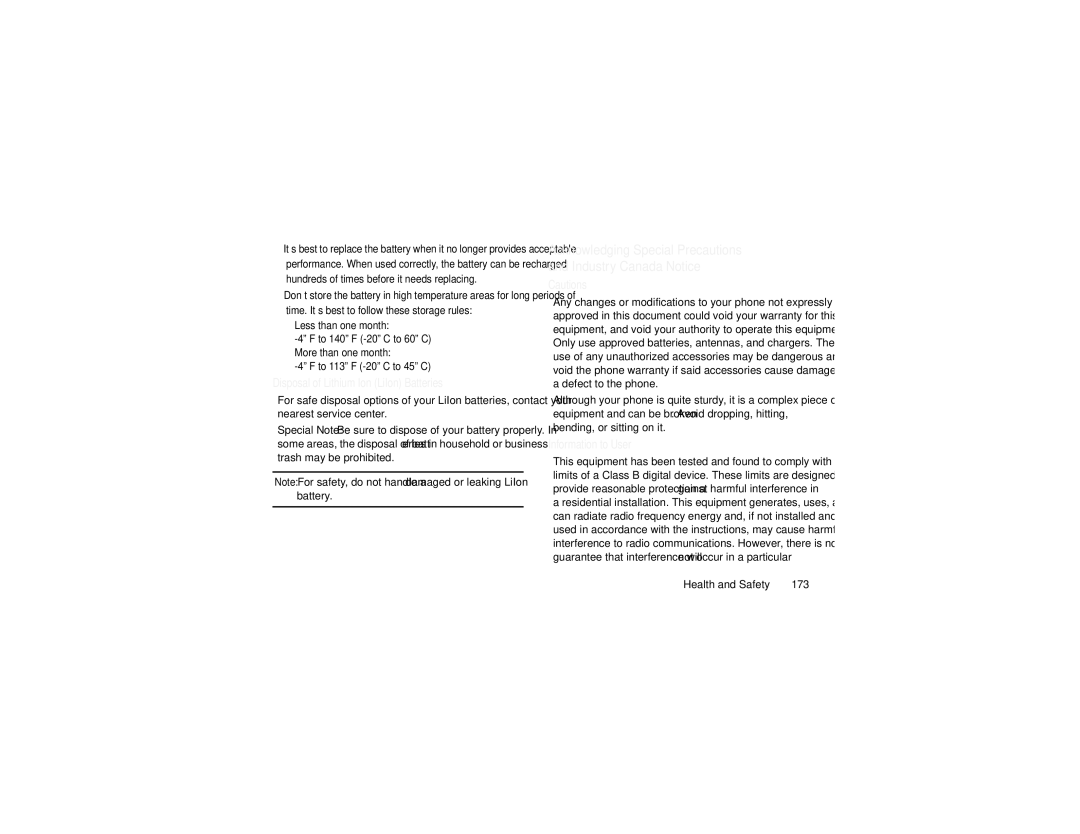•It’s best to replace the battery when it no longer provides acceptable performance. When used correctly, the battery can be recharged hundreds of times before it needs replacing.
•Don’t store the battery in high temperature areas for long periods of time. It’s best to follow these storage rules:
–Less than one month:
–More than one month:
Disposal of Lithium Ion (LiIon) Batteries
For safe disposal options of your LiIon batteries, contact your nearest service center.
Special Note: Be sure to dispose of your battery properly. In some areas, the disposal of batteries in household or business trash may be prohibited.
Note: For safety, do not handle a damaged or leaking LiIon battery.
Acknowledging Special Precautions and Industry Canada Notice
Cautions
Any changes or modifications to your phone not expressly approved in this document could void your warranty for this equipment, and void your authority to operate this equipment. Only use approved batteries, antennas, and chargers. The use of any unauthorized accessories may be dangerous and void the phone warranty if said accessories cause damage or a defect to the phone.
Although your phone is quite sturdy, it is a complex piece of equipment and can be broken. Avoid dropping, hitting, bending, or sitting on it.
Information to User
This equipment has been tested and found to comply with the limits of a Class B digital device. These limits are designed to provide reasonable protection against harmful interference in a residential installation. This equipment generates, uses, and can radiate radio frequency energy and, if not installed and used in accordance with the instructions, may cause harmful interference to radio communications. However, there is no guarantee that interference will not occur in a particular
Health and Safety | 173 |
